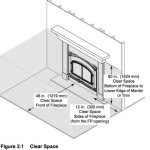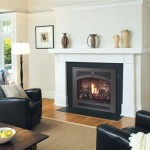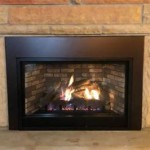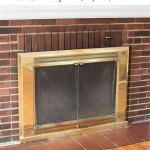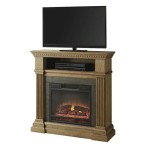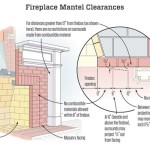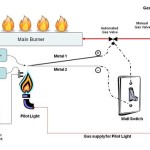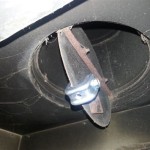```html
Fireplace Flue Repair: Ensuring Safety and Efficiency
A fireplace flue, also known as a chimney liner, is a crucial component of any fireplace system. Its primary function is to safely vent combustion byproducts, such as smoke, gases (including carbon monoxide), and creosote, from the fireplace to the outside atmosphere. A damaged or deteriorated flue compromises the safety and efficiency of the entire fireplace system, potentially leading to hazardous conditions and costly repairs. Understanding the common causes of flue damage, recognizing the signs of deterioration, and knowing the available repair options are essential for maintaining a safe and functional fireplace.
Common Causes of Fireplace Flue Damage
Several factors can contribute to the deterioration and eventual failure of a fireplace flue. Recognizing these potential sources of damage is the first step in preventative maintenance.
Water Damage: Water is a significant contributor to flue damage. Rain, snow, and condensation can penetrate the chimney structure through cracks in the masonry, a damaged chimney crown, or a missing chimney cap. Once water infiltrates the chimney, it can freeze and thaw, expanding and contracting within the flue lining material. This process, known as the freeze-thaw cycle, can cause cracks, spalling (surface crumbling), and eventual disintegration of the liner. Acidic compounds present in flue gases can also dissolve and weaken the flue material, accelerating the damage caused by water.
Creosote Buildup: Creosote is a highly flammable byproduct of incomplete combustion that accumulates on the interior walls of the flue. While a thin layer of creosote is normal, excessive buildup can significantly reduce the flue's draft, increasing the risk of chimney fires. Chimney fires can severely damage the flue, causing cracks, warping, and even complete collapse. Regular chimney sweeping is crucial to prevent creosote buildup and the associated risks. The type of wood burned also plays a role; burning unseasoned or wet wood produces more smoke and creosote than burning dry, seasoned wood.
Age and Deterioration: Like any structural component, fireplace flues are subject to natural wear and tear over time. Older flues, particularly those made of clay tile, are more susceptible to cracking and deterioration due to age and exposure to the elements. The mortar joints between clay tiles can also weaken and crumble, creating pathways for flue gases to escape and potentially leak into the home. Regular inspections can identify signs of age-related deterioration before they become major problems.
Settling and Structural Movement: Ground settling or other structural movement in the building can put stress on the chimney, leading to cracks in the flue and surrounding masonry. Earthquakes, even minor ones, can also cause significant damage. If the building experiences any settling or movement, it is crucial to have the chimney inspected for potential damage.
Improper Installation: A poorly installed flue is more likely to experience problems than one that is properly installed. Issues such as incorrect sizing, improper support, or the use of incompatible materials can all contribute to premature failure. If the fireplace or chimney was not installed according to building codes or manufacturer's instructions, it could be at a higher risk of problems.
Recognizing Signs of Fireplace Flue Damage
Early detection of flue damage is critical to preventing more extensive and costly repairs. Homeowners should be aware of the following warning signs:
Visible Cracks or Spalling: Cracks in the flue lining or spalling on the interior walls of the chimney are clear indicators of damage. These cracks can range from hairline fractures to larger, more significant breaks. Spalling refers to the surface crumbling or flaking of the flue material. These signs are often visible during a chimney inspection using a specialized camera.
Mortar Joint Deterioration: Crumbling or missing mortar between the flue tiles is another sign of a problem. This allows flue gases to escape and can weaken the structural integrity of the chimney. The mortar joints are a critical component of a tile flue and require periodic inspection and maintenance.
Water Leaks: Water stains on the ceiling around the chimney, or dampness inside the firebox, can indicate a leak in the flue or chimney structure. Water leaks not only damage the flue but can also lead to mold growth and structural damage to the surrounding building materials.
Draft Problems: A poorly functioning flue can result in a weak or reversed draft, causing smoke to back up into the room. This can be caused by creosote buildup, obstructions in the flue, or cracks that allow air to enter the chimney and disrupt the draft. Difficulty starting or maintaining a fire can also be a sign of draft problems.
Unusual Odors: A persistent smoky or musty odor emanating from the fireplace, especially when the fireplace is not in use, can indicate a problem with the flue. These odors may be caused by creosote buildup, water damage, or the presence of animals or debris in the chimney.
Debris in the Firebox: Finding pieces of flue lining or mortar in the firebox is a clear sign that the flue is deteriorating. Regular inspection of the firebox can help identify this type of damage.
Carbon Monoxide Detection: One of the most dangerous consequences of a damaged flue is the potential for carbon monoxide (CO) to leak into the home. Carbon monoxide is a colorless, odorless gas that can be deadly. Functioning CO detectors are essential in any home with a fireplace, and any signs of flue damage should be addressed immediately to prevent CO poisoning.
Fireplace Flue Repair Options
Several repair options are available for damaged fireplace flues, depending on the extent and nature of the damage. A qualified chimney professional can assess the situation and recommend the most appropriate solution.
Flue Relining: Flue relining involves installing a new liner inside the existing chimney. This is a common solution for flues with extensive cracking or deterioration. Several types of liners are available, including:
Stainless Steel Liners: Stainless steel liners are durable, corrosion-resistant, and suitable for all types of fireplaces, including those burning wood, gas, or oil. They are typically assembled in sections and lowered down the chimney flue. Stainless steel liners offer excellent protection against creosote buildup and are resistant to the corrosive effects of flue gases.
Aluminum Liners: Aluminum liners are less expensive than stainless steel liners but are only suitable for certain types of gas-burning fireplaces. They are not appropriate for wood-burning fireplaces due to the higher temperatures and corrosive byproducts produced by wood combustion. Using an aluminum liner in a wood-burning fireplace is a fire hazard.
Cast-in-Place Liners: Cast-in-place liners involve pouring a special cement-like mixture into the existing flue to create a seamless, airtight liner. This method is often used to repair severely damaged flues and can improve the structural integrity of the chimney. Cast-in-place liners are durable and offer excellent fire protection.
Flue Tile Replacement: If only a few flue tiles are damaged, it may be possible to replace them individually. This involves removing the damaged tiles and installing new ones with appropriate mortar. Tile replacement is a less expensive option than relining but is only suitable for minor damage.
Chimney Crown Repair or Replacement: The chimney crown is the concrete slab that covers the top of the chimney and protects the flue from water damage. A cracked or damaged chimney crown can allow water to enter the chimney, leading to flue deterioration. Repairing or replacing the chimney crown is essential for preventing water damage and prolonging the life of the flue.
Tuckpointing: Tuckpointing involves removing deteriorated mortar from the chimney's brick or stone masonry and replacing it with new mortar. This helps to prevent water from penetrating the chimney structure and can improve its structural stability. While tuckpointing doesn't directly repair the flue itself, it helps to protect the chimney and, consequently, the flue from further damage.
Flue Sealing: In some cases, minor cracks in the flue can be sealed with a specialized sealant designed for high-temperature applications. This can help to prevent flue gases from escaping and improve the draft. However, flue sealing is not a permanent solution and is only suitable for very minor damage.
Chimney Cap Installation: Installing a chimney cap is a simple but effective way to protect the flue from water, debris, and animals. A chimney cap also helps to prevent downdrafts and improve the fireplace's draft. A chimney cap is an essential part of chimney maintenance and should be installed on all chimneys.
The selection of the appropriate repair method depends on a comprehensive assessment of the flue's condition and the specific requirements of the fireplace system. Consulting with a qualified chimney professional is crucial to determine the best course of action and ensure that the repairs are performed correctly and safely. Neglecting flue repairs can lead to serious safety hazards, including chimney fires and carbon monoxide poisoning. Regular inspections and timely repairs are essential for maintaining a safe and efficient fireplace system.
```
Chimney Lining Repair Systems Heatshield

Advantages Of Heatshield Relining Crofton Md Clean Sweep

Flue Repairs And Chimney Relining A 1 Pro

Flue Repairs And Chimney Relining A 1 Pro

Heatshield Relining Charlotte Nc Owens Chimney Systems

Chimney Lining Repair Systems Heatshield

Nicholas Chimney Sweeping Stove Fireplace Services Vienna Virginia

Damper Repair Replacement Cherry Hill Mason S Chimney Serivce

Fixr Com Chimney Repair Cost To Fix A

What Is A Fireplace Chimney Flue Liner Full Service
Related Posts

